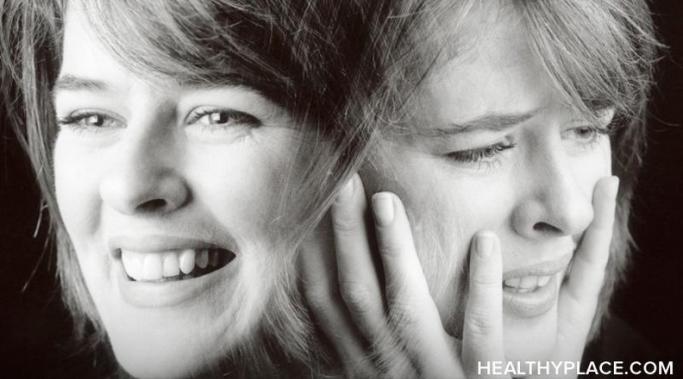Being a role model is already difficult enough, but when you're trying to set a good example for your younger siblings when you're depressed, it can seem impossible. Though it wasn't easy, I fought the depression at every turn and was able to come out of the situation satisfied that I left a good example for my little brother and sister. Despite the depression, I chose to be there for my family when they needed me, and now you can too -- here's how.
Mental Illness in the Family
I've spent some time this week, reflecting on various lessons I've learned from my brother since he became mentally unwell with anxiety and depression. So often in our relationship, I've taken on the role of "teacher" -- as is natural for a bossy older sibling. However, over the last seven years, I have gained a lot from observing how my brother lives with mental illness. I'd like to unpack that a little bit today.
I’m Alixzandria Paige, and I’m so excited to join HealthyPlace. I grew up in a big family, and unfortunately, many of my family members have a mental illness. While it has been challenging, my family with mental illnesses have all gotten so much better over time. As for me, I have a psychology degree and use my degree experience to help myself and others overcome mental health issues so that we may live the lives that we deserve.
Caregiver burnout is a very real phenomenon when supporting someone with mental illness. In my experience, caregiver stress and compassion fatigue arise as a result of putting your own needs to the bottom of your list on a consistent basis. I've experienced caregiver burnout on many occasions when supporting my brother with his mental illness -- and if I'm very honest, I'm experiencing it again right now.
Marrying someone with a mental illness can cause challenges, but so can any marriage. A good friend of mine is married to a man with schizophrenia. And I know from my brother (who also has chronic mental health issues) that romantic relationships can be extra difficult when mental illness is thrown into the mix. My friend kindly shared some of her experiences with me, and I share them on this post with her blessing.
Many people aren’t sure whether or not to talk to kids about mental illness. When I was younger my aunt had frequent hospitalizations due to mental health issues, but I was told she had a sore back. I guess my family thought this was an inappropriate topic to talk to a child about. In hindsight, I think it could have been a positive conversation if I had been told about my aunt’s mental illness – here’s why.
Why does my loved one have a mental illness? Is there something I could have done to stop this from happening? I tormented myself with questions like this when my brother first became unwell with anxiety and depression -- and guess what? They only made things harder.
Feeling overwhelmed by supporting someone with mental illness is nothing to be ashamed of, but sometimes we can struggle to admit our true feelings. Here's a little bit about how I felt when my brother was diagnosed with chronic anxiety and depression.
I worry that my brother will die by suicide. Even typing those words feels frighteningly intimate because this very real fear is an unspoken one in our family. (This post contains a trigger warning.)
Making healthy boundaries with a mentally ill family member is a key step for your self-care as a supporter. Read on to learn more about the kinds of boundaries I have with my brother, who has chronic depression and anxiety.









